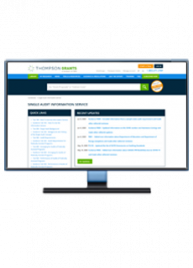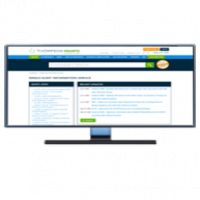Sneak Preview: HUD Office Aims To Better Protect Recipient PII

(The following was excerpted from a recent Thompson Grants Compliance Expert article.) Department of Housing and Urban Development (HUD) Office of Community Planning and Development (CPD) officials have expanded their use of remote monitoring of grant recipients in recent years due to concerns caused by the COVID-19 pandemic, but in response to findings in a recent HUD Office of Inspector General audit, they are now working to better safeguard recipient personally identifiable information (PII) when gathering data under these efforts.
CPD is responsible for more than 20 grant programs, such as the Community Development Block Grant (CDBG), CDBG Disaster Recovery, HOME Investment Partnerships, Emergency Solutions Grants and the Housing Opportunities for Persons with AIDS programs. The office received about $14 billion in supplemental appropriations through the Coronavirus Aid, Relief, and Economic Security (CARES) Act (Pub. L. 116-136) and the American Rescue Plan Act (Pub. L. 117-2), which more than doubled the total funding available for some CPD programs. While CPD was tasked with allocating and overseeing this significant increase in grant funding, its monitoring workforce was forced by COVID-19 safety concerns to transition from its typical on-site monitoring to performing nearly all of its oversight functions remotely.
The CPD Monitoring Handbook, which instructs monitoring staff to complete reports (called “exhibits”) that include specific review questions under each of its grant programs, provides direction for employees on performing both onsite and remote monitoring. CPD employees use the Grants Management Process (GMP) system to electronically submit completed monitoring exhibits for internal review and approval. They then must notify the recipient within 60 days about their monitoring conclusions.
Prior to the pandemic, CPD used remote monitoring on a limited basis, and there was no centralized or consistent mechanism for grantees to submit documents electronically to the office. Some grantees sent documents to CPD via email, while others mailed hardcopy documents. In April 2021, CPD launched the Grantee Document Exchange (GDX), which is an externally accessible portal that allows grantees and CPD to securely share documents during monitoring sessions. This better enabled CPD employees to shift from retrieving and reviewing grantees’ documents primarily on-site to remotely retrieving documents in an electronic form.
OIG surveyed CPD officials for the audit to gauge their response to remote monitoring. It found that 89% of employees deemed remote monitoring either “very effective” or “somewhat effective” in ensuring that HUD-funded programs were carried out efficiently and in compliance with applicable laws and regulations. Some 92% of employees said remote monitoring was an effective approach during an emergency, while 63% said that remote monitoring was about as effective or more effective in achieving CPD’s monitoring objective.
(The full version of this story has now been made available to all for a limited time here.)
Join us for our following Thompson Grants events:
Thompson Grants Workshop: Subrecipient Monitoring | May 23, 2023 | Virtual Event
Federal Grants Forum | June 28-30, 2023 | Portland, Maine



